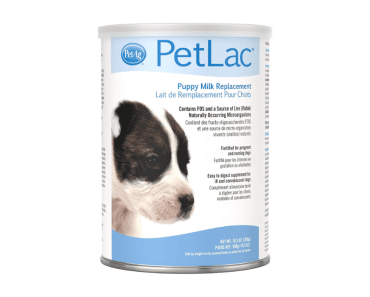
As a pet owner, you may wonder if including edamame beans in your furry friend’s diet is safe. Edamame beans are a popular snack among humans, and their nutritional benefits may make you curious about sharing them with your canine companion. This article will explore whether dogs can eat edamame beans, the potential risks and benefits, and how to incorporate them into your dog’s diet responsibly.
- Edamame beans can be safe for dogs to eat in moderation.
- They are low in calories and contain beneficial vitamins and minerals.
- However, dogs with soy allergies should avoid edamame.
- Too much fiber from edamame can cause stomach problems.
- Edamame pods can be difficult to digest and pose a choking hazard, especially for small dogs.
- Offering dogs plain and fresh edamame beans without added ingredients is best.
- Introduce edamame slowly and monitor for any adverse reactions.
Before making significant changes to your dog’s diet, it’s always a good idea to consult your veterinarian to ensure you make the best choices for your furry friend’s health and well-being.
The Nutritional Value of Edamame for Dogs
Edamame beans offer several nutritional benefits that positively contribute to your dog’s health. These delicious green soybeans are packed with essential vitamins and minerals, making them a nutritious addition to your furry friend’s diet.
One of the key benefits of edamame for dogs is its rich vitamin content. Edamame is an excellent source of vitamin C, which helps boost the immune system and supports healthy skin and coat. Additionally, it contains calcium, which promotes strong bones and teeth, and omega-3 fatty acids, which contribute to a healthy heart and brain function.
Furthermore, edamame is high in fiber, aiding digestion and promoting your dog’s bowel regularity. Fiber also helps regulate blood sugar levels and can contribute to weight management. Additionally, edamame contains folate, a B vitamin that supports the growth and development of cells in the body.
| Nutrient | Amount per 100g |
|---|---|
| Vitamin C | 7.7mg |
| Calcium | 63mg |
| Omega-3 Fatty Acids | 13mg |
| Fiber | 5.2g |
| Folate | 61μg |
It’s important to note that while edamame offers numerous nutritional benefits, it should only be fed to dogs in moderation and as part of a balanced diet. It’s always best to consult a veterinarian to determine the appropriate serving size and frequency based on your dog’s needs and health condition.
Introducing new foods to your dog’s diet should be done gradually. When incorporating edamame into their meals, monitor your dog for adverse reactions or digestive issues. It’s also essential to feed your dog plain and fresh edamame beans without any added seasonings or ingredients, as certain spices and additives can harm their health.

In conclusion, edamame beans can be a healthy and nutritious addition to your dog’s diet when fed in moderation. With abundant vitamins, minerals, fiber, and other benefits, edamame can support your dog’s overall well-being. However, it’s crucial to be aware of potential risks, such as soy allergies, digestion issues, and choking hazards. Always consult a veterinarian to ensure that edamame is suitable for your dog and determine the appropriate portion size for their dietary needs.
Potential Hazards of Feeding Edamame to Dogs
While edamame can be a healthy addition to your dog’s diet, it’s important to be aware of potential hazards and take necessary precautions. Dogs with soy allergies should avoid edamame, as soy is a common allergen for dogs. Suppose your dog has a known soy allergy or experiences any adverse reactions after consuming edamame. In that case, it’s best to consult a veterinarian for alternative protein sources suitable for dogs with soy allergies.
Another potential hazard is the risk of too much fiber causing stomach problems. Although fiber is important for a dog’s digestive health, excessive intake can lead to gastrointestinal discomfort, including bloating, gas, and diarrhea. When introducing edamame to your dog’s diet, start with small amounts and gradually increase the portion over time while monitoring for any adverse reactions. If your dog experiences digestive issues, it’s best to consult with a veterinarian for further guidance.
In addition, edamame pods can be difficult to digest and pose a choking hazard, especially for small dogs. The pods are not easily broken down by a dog’s digestive system, increasing the risk of choking or gastrointestinal blockages. To minimize this risk, serving dogs fresh and plain edamame beans without the pods is recommended. This eliminates the choking hazard and ensures that your dog receives the nutritional benefits of edamame without the potential digestive issues associated with the pods.

| Potential Hazards of Feeding Edamame to Dogs: |
|---|
| Dogs with soy allergies should avoid edamame |
| Excessive fiber intake can cause stomach problems |
| Edamame pods can pose a choking hazard and are difficult to digest |
Remember that every dog is unique, and what works well for one dog may not be suitable for another. It’s always best to consult with a veterinarian before significantly changing your dog’s diet. They can provide personalized advice based on your dog’s needs, ensuring a balanced and nutritious diet while minimizing potential hazards.
Introducing Edamame to Your Dog’s Diet
When introducing edamame to your dog’s diet, it’s crucial to do so gradually and keep a close eye on their response. Edamame beans can be a nutritious addition to your furry friend’s meals, but it’s important to be aware of potential risks and to take the necessary precautions.
Start by offering small amounts of plain and fresh edamame beans without any added seasonings or ingredients that could harm your dog’s health. Monitor your dog for any signs of digestive issues or allergic reactions, such as vomiting, diarrhea, or itching. If you notice any adverse reactions, consult with your veterinarian.
Remember that edamame should only make up a small portion of your dog’s food intake. Maintaining a balanced and varied diet for your furry companion is important, so consult with your veterinarian to determine the appropriate amount of edamame to include in their meals.
Incorporating edamame into your dog’s diet can provide them with beneficial vitamins and minerals, such as vitamin C, calcium, omega-3 fatty acids, fiber, and folate. However, it’s crucial to consider your dog’s needs and pre-existing conditions, such as soy allergies or digestive sensitivities, before incorporating edamame into their meals.

| Potential Benefits of Edamame for Dogs | Potential Risks of Edamame for Dogs |
|---|---|
|
|
“Introducing edamame to your dog’s diet can provide them with nutritional benefits, but it’s important to proceed with caution and monitor their response.”
Consult with Your Veterinarian
To ensure the health and well-being of your dog, it’s always best to consult with a veterinarian before making any significant changes to their diet. They can provide personalized dietary recommendations based on your dog’s needs, considering allergies, sensitivities, or underlying health conditions.
Remember that each dog is unique, and what works for one may not work for another. By working closely with your veterinarian, you can make informed decisions about including edamame in your furry friend’s diet and ensure they stay happy and healthy.
The Role of Edamame in Canine Nutrition
Edamame can support your dog’s nutritional needs, but it should be incorporated thoughtfully as part of a well-rounded diet. These vibrant green soybeans are packed with essential vitamins, minerals, and beneficial components that can contribute to your dog’s overall health.
Rich in vitamin C, calcium, omega-3 fatty acids, fiber, and folate, edamame beans offer a range of nutritional benefits for dogs. Vitamin C supports a healthy immune system, while calcium promotes strong bones and teeth. Omega-3 fatty acids are beneficial for cardiovascular health, and fiber aids in digestion and helps maintain a healthy weight. Additionally, folate plays a crucial role in cell division and the formation of red blood cells.
To give you a better understanding of the nutritional value of edamame, here’s a table summarizing the key vitamins and minerals found in these beans:
| Vitamins | Minerals |
|---|---|
| Vitamin C | Calcium |
| Folate | |
While edamame can benefit dogs, it’s important to be aware of potential risks. Some dogs may have soy allergies, so if your dog is allergic to soy, it’s best to avoid feeding them edamame. Additionally, too much fiber from edamame can cause stomach problems, so it’s crucial to introduce these beans gradually and in moderation. Moreover, the edamame pods can be difficult to digest and present a choking hazard, especially for small dogs.
Remember, edamame should only make up a small portion of your dog’s diet, and it’s always wise to consult with a veterinarian before making any significant changes to their dietary routine. With proper caution and moderation, you can incorporate edamame into your dog’s nutrition plan, offering them a tasty and nutritious snack that contributes to their overall well-being.

Considerations for Dogs with Soy Allergies
If your dog has a soy allergy, it’s best to avoid feeding them edamame beans. Soy is a common allergen, and dogs with soy allergies can experience adverse reactions if they consume edamame or other soy-based products. Knowing your dog’s specific allergies and dietary needs is important to ensure their health and well-being.
When it comes to alternative protein sources for dogs with soy allergies, plenty of options are available. One popular option is to introduce lean meats such as chicken or turkey into their diet. These meats are easily digestible and provide essential nutrients. Additionally, fish, such as salmon or sardines, can be a great source of omega-3 fatty acids and protein for dogs with soy allergies.
If you’re unsure about what protein sources suit your dog, it’s always best to consult your veterinarian. They can provide personalized recommendations based on your dog’s needs and allergies. By working closely with your vet, you can ensure your furry friend receives the necessary nutrients while avoiding potential allergens.

| Protein Source | Benefits |
|---|---|
| Chicken | Lean meat, easily digestible, high in protein |
| Turkey | Lean meat, easily digestible, high in protein |
| Fish (salmon, sardines) | Rich in omega-3 fatty acids and protein |
| Beef (if not allergic) | High in protein |
“It’s important to be aware of your dog’s specific allergies and dietary needs to ensure their health and well-being.”
You can ensure their overall health and happiness by taking special care to accommodate your dog’s soy allergy and providing them with suitable alternative protein sources. Always consult your veterinarian for personalized dietary recommendations and monitor your dog for any adverse reactions to new food introductions.
Moderation is Key
Remember, moderation is crucial when it comes to edamame in your dog’s diet. While edamame can be a healthy addition to your furry friend’s meals, it should only make up a small portion of their food intake. A balanced and varied diet is essential for their well-being, and edamame can provide valuable nutrients like vitamin C, calcium, omega-3 fatty acids, fiber, and folate.
However, it’s important to be aware of potential hazards and risks associated with feeding edamame to dogs. Some dogs may have soy allergies, making edamame unsuitable for them. Too much fiber from edamame can lead to stomach problems, so it’s vital to introduce it slowly and monitor for any adverse reactions. For small dogs, the pods can be difficult to digest and pose a choking hazard. To avoid these risks, serving your dog plain and fresh edamame beans without any added ingredients is best.
Consulting with a veterinarian before introducing edamame or making significant dietary changes for your dog is always a wise decision. They can provide personalized recommendations based on your dog’s specific needs and help ensure their diet remains balanced and nutritionally adequate. Your veterinarian will consider age, breed, size, and any existing health conditions to provide the best guidance for your furry friend’s overall well-being.

To sum up, edamame can be a safe and nutritious treat for your canine companion if served in moderation and following the necessary precautions. Remember to:
- Introduce edamame slowly and monitor for any adverse reactions.
- Offer plain and fresh edamame beans without added ingredients, avoiding flavored varieties.
- Avoid feeding edamame to dogs with soy allergies.
- Be cautious with small dogs, as the pods can pose a choking hazard.
- Consult with a veterinarian to determine the right amount and frequency of edamame in your dog’s diet.
Following these guidelines and seeking professional advice, you can safely incorporate edamame into your dog’s diet as an occasional and nutritional treat. Remember, your pet’s well-being is always the top priority!
| Vitamins and Minerals in Edamame | Per 100g |
|---|---|
| Vitamin C | 11mg |
| Calcium | 63mg |
| Omega-3 Fatty Acids | 151mg |
| Fiber | 6g |
| Folate | 121μg |
Fresh and Plain Edamame for Dogs
When feeding edamame to your furry friend, always opt for fresh and plain beans without any additional flavors or seasonings. This ensures that your dog gets edamame’s pure nutritional benefits without any potentially harmful additives. Fresh edamame beans are a healthy and tasty treat for dogs, providing them with essential vitamins and minerals.
Edamame beans are low in calories, making them a great alternative to high-calorie treats. They are also gluten-free, making them suitable for dogs with gluten sensitivities. The nutritional value of edamame for dogs is impressive, as they are packed with vitamins and minerals that contribute to their overall health and well-being.

| Nutrient | Amount |
|---|---|
| Vitamin C | Boosts immune system function |
| Calcium | Promotes strong bones and teeth |
| Omega-3 fatty acids | Supports healthy skin and coat |
| Fiber | Aids in digestion and promotes bowel regularity |
| Folate | Important for cell growth and development |
However, it’s important to be aware of potential risks and side effects when feeding edamame to dogs. Dogs with soy allergies should avoid edamame, as soy is a common allergen. Additionally, too much fiber from edamame can lead to stomach problems, so it’s crucial to offer edamame in moderation. Edamame pods can also be difficult to digest and pose a choking hazard, especially for small dogs. Always remove the pods before feeding edamame to your furry friend.
Conclusion
In conclusion, edamame can be a nutritious addition to your dog’s diet. Still, it’s essential to exercise caution and consult with your veterinarian to ensure it fits well into your dog’s overall nutritional plan.
Edamame beans are low in calories and gluten-free, making them a healthy dog snack option. They contain beneficial vitamins and minerals such as vitamin C, calcium, omega-3 fatty acids, fiber, and folate, which can contribute to your dog’s overall well-being.
However, it’s important to be aware of potential side effects and risks associated with feeding edamame to dogs. Dogs with soy allergies should avoid edamame, as soy is a common allergen. Additionally, the high fiber content in edamame can cause stomach problems if consumed in excess. The edamame pods can also be difficult to digest and pose a choking hazard, particularly for small dogs.
To ensure your dog’s safety, it’s best to offer plain and fresh edamame beans without any added ingredients. Introduce edamame slowly into your dog’s diet, starting with small amounts and monitoring for adverse reactions. Remember that edamame should only make up a small portion of your dog’s overall food intake and not replace regular meals.
Before making any significant changes to your dog’s diet, consult a veterinarian who can provide personalized dietary recommendations based on your dog’s specific needs and health conditions. They can help determine if edamame is a suitable addition to your dog’s nutritional plan and suggest alternative protein sources for dogs with soy allergies.
FAQ
Can dogs eat edamame beans?
Yes, dogs can eat edamame beans in moderation.
What are the nutritional benefits of edamame for dogs?
Edamame beans are low in calories and contain beneficial vitamins and minerals such as vitamin C, calcium, omega-3 fatty acids, fiber, and folate.
What are the potential hazards of feeding edamame to dogs?
Dogs with soy allergies should avoid edamame, as soy is a common allergen. Too much fiber can cause stomach problems, and the pods can pose a choking hazard, especially for small dogs.
How should I introduce edamame to my dog’s diet?
It’s important to start with small amounts and gradually increase the portion. Monitor for any adverse reactions, and consult with a veterinarian if needed. Not all dogs can digest edamame easily.
What role does edamame play in canine nutrition?
Edamame can be part of a balanced diet for dogs but should only make up a small portion of their overall food intake. Consult with a veterinarian for specific dietary recommendations.
Can dogs with soy allergies eat edamame?
Dogs with soy allergies should avoid edamame. Consult with a veterinarian for alternative protein sources suitable for dogs with soy allergies.
How much edamame should I feed my dog?
Edamame should only make up a small portion of a dog’s overall food intake. Consult with a veterinarian for specific portion recommendations based on your dog’s size, age, and nutritional needs.
Can I feed flavored edamame to my dog?
It’s best to offer dogs plain and fresh edamame beans with no added ingredients. Flavored edamame may contain seasonings or additives that could be harmful to their health.
Should I serve edamame with or without the pods?
It’s recommended to serve edamame without the pods to avoid potential choking hazards, especially for small dogs.
Is it safe to make significant changes to my dog’s diet to include edamame?
It’s important to consult with a veterinarian before making any significant changes to a dog’s diet. They can provide guidance specific to your dog’s individual needs and ensure a balanced diet.






